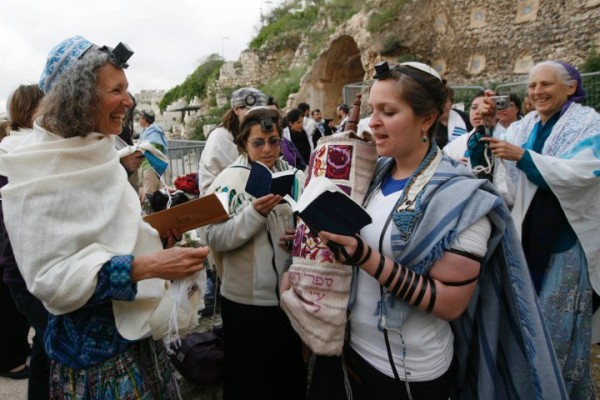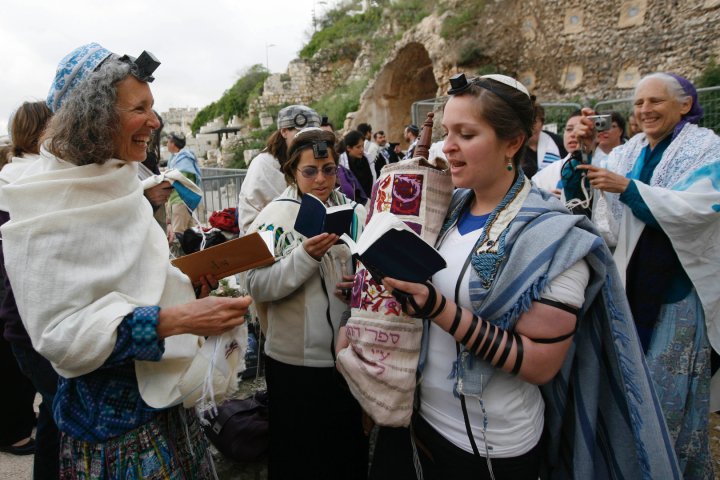
Growing up in the early 2000’s means I watched copious amounts of Arthur, Cyberchase, Pokémon, and Yu-Gi-Oh!; I knew the dance to “Soulja Boy,” played on my Gameboy obsessively, and ate Go-gurts (or the kosher equivalents thereof) on the school bus ride home.
Growing up in the 2000’s also meant that I saw men and women participating equally in society. Both of my parents worked, as did many of my friends’ parents. I was taught that little boys and girls were to grow up and become whomever they wanted to be — doctors, lawyers, nurses, teachers, the President. I was taught that boys and girls are equal, and that was what seemed right. When I was in kindergarten, girls might have had cooties, but boys were just as icky.
Sadly, however, the world isn’t kindergarten, and I soon realized that there were some spaces in which men and women were not equal. One of those was the ultra-Orthodox community in which my family lived for much of my life, where many of my female friends were not expected to attend services in the same way that I, as a male, was. I was allowed to read from the Torah, lead services, offer divrei Torah and recite the prayers for the Israeli Defense Forces and the American army (one of the few modern concessions my synagogue made) in our teen minyan. Girls, on the other hand, never were. As I grew older and became a bar mitzvah, which made me a full-fledged adult according to Jewish tradition — and especially after I entered high school, where, unlike middle school, all of the classes were fully coeducational — I became cognizant of the disparity between the modern, progressive, and increasingly egalitarian world in which I was supposed to take an active role and the traditional and segregated community of which I was a part.
In order to reconcile those differences, I began to look for other ways to engage myself religiously. One of the ways I did so was slowly progressing toward more egalitarian communities, which I thought would be more in line with both my progressive worldview and my traditional attitudes toward Judaism — a religion that changes with the times, but is also rich in Jewish tradition. Part of that included my decision to begin attending traditional Conservative services.
That is not what I found. To me, entering the traditional Conservative world should have meant that I would be able to sit alongside women during services, that women would be able to lead services and read from the Torah like I did (and do). However, Conservative Judaism, as an institution, does not see women, according to Jewish tradition, as obligated in commandments in the same way that men are. Instead, women have been given the chance to opt into those commandments . In essence, the Conservative Movement’s approach to egalitarianism still plays into the same patriarchal, non-egalitarian society that I saw Orthodoxy playing into, making it both non-traditional and not truly egalitarian. In its efforts to preserve these two core beliefs, it has accomplished neither and has tarnished both.
To me, however, and to many others like me who grew up Orthodox, living in a society that purports to be fully egalitarian means that our religion must, too, become fully egalitarian. Thus, men and women should be treated as equals — full equals. Women shouldn’t only be expected or allowed to don tefillin, wear a tallit, and pray thrice daily as men are required to do, but should be considered equally obligated. I do not want this statement, however, to be interpreted as me, a man, assigning women roles: I see building these communities as a partnership of equals, not as one party that has power transferred to another.
This means that as women enter the public religious sphere and take on roles in communal Jewish life — a sphere traditionally left to the control of men — men must, in turn, become active players in Jewish home life, which has been traditionally left to women. A Judaism that is truly both traditional and progressive must make spaces for both men and women who view themselves as equally obligated in both communal Jewish life and home Jewish life. That, to me, is a community that befits an egalitarian society like ours. This is especially true for me, and for the family I hope to have one day, which, by definition, cannot be divided along the same gendered lines that Orthodox families are.
The Modern Orthodox and Traditional Conservative young women and men of my generation have started to realize this, and are taking steps to create a community that is, at the same time, egalitarian and traditional. To me, the search for one is integral to the search for the other; a community is not truly egalitarian when men and women merely sit alongside each other in the synagogue. It is one where men and women are truly considered equals, and are encouraged to pursue the same opportunities.
The traditionally observant Jewish community is in a time of flux, and the debate over the role that women play in communal Jewish life (and, tangentially related, the role that men will have to play in home Jewish life) is part-and-parcel of that flux. The most recent part of this debate has surfaced this week, with the publication of several news pieces that discuss young women who have decided to don tefillin, and the decisions of two prominent Modern Orthodox day schools, SAR and Ramaz (my alma mater), to allow female students to don tefillin during morning services. These two hallmark Modern Orthodox institutions are taking a stand, and are becoming a part of a growing movement to create a society in which men and women are allowed to partake equally in the rich ritual tradition that Judaism has to offer, and to live in the modern, progressive world that we all take part in creating.
That is a community to which I can belong. That is a community in which, one day, I hope to raise children: a community where modern, progressive values are not checked at the door of the synagogue when I enter services, but, instead, where twenty-first-century values stand equally and alongside a Judaism that is rich in tradition and history.

